Related Research Articles

The Royal College of Surgeons of England is an independent professional body and registered charity that promotes and advances standards of surgical care for patients, and regulates surgery and dentistry in England and Wales. The College is located at Lincoln's Inn Fields in London. It publishes multiple medical journals including the Annals of the Royal College of Surgeons of England, the Faculty Dental Journal, and the Bulletin of the Royal College of Surgeons of England.

Orthopedic surgery or orthopedics, is the branch of surgery concerned with conditions involving the musculoskeletal system. Orthopedic surgeons use both surgical and nonsurgical means to treat musculoskeletal trauma, spine diseases, sports injuries, degenerative diseases, infections, tumors, and congenital disorders.
Sir John Fraser, 1st Baronet, FRSEd was Regius Professor of Clinical Surgery at Edinburgh University from 1925 to 1944 and served as principal of the University of Edinburgh from 1944 to 1947.
A bonesetter is a practitioner of joint manipulation. Before the advent of chiropractors, osteopaths and physical therapists, bonesetters were the main providers of this type of treatment. Traditionally, they practiced without any formal training in accepted medical procedures. Bonesetters would also reduce joint dislocations and "re-set" bone fractures.
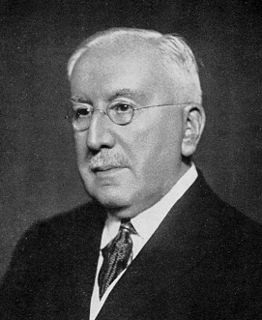
Sir Charles Alfred Ballance was an English surgeon who specialized in the fields of otology and neurotology.
George Kenneth "Ken" McKee was an English orthopaedist, one of the pioneers of hip replacement surgery in the 1950s. He is now honoured with a bust at the Norfolk and Norwich University Hospital.
Sir Frank Wild Holdsworth was an English orthopaedic surgeon remembered for pioneering work on rehabilitation of spinal injury patients. He described the Holdsworth fracture of the spine in 1963.
The Bradshaw Lectures are prestigious lectureships given at the invitation of the Royal College of Physicians and the Royal College of Surgeons of England.
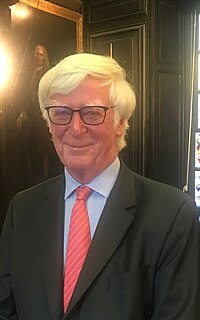
Sean Patrick Francis Hughes is emeritus professor of orthopaedic surgery at Imperial College London where he was previously professor of orthopaedic surgery and head of the department of surgery, anaesthetics and intensive care. Earlier in his career he had been professor of orthopaedic surgery at the University of Edinburgh.
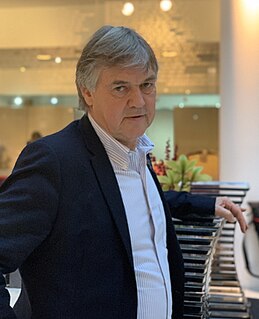
Roger Sinclair Kirby FRCS(Urol), FEBU is a British retired prostate surgeon and professor of urology, researcher, writer on men's health and prostate disease, founding editor of the journal Prostate Cancer and Prostatic Diseases and Trends in Urology and Men's Health and a fundraiser for prostate disease charities, best known for his use of the da Vinci surgical robot for laparoscopic prostatectomy in the treatment of prostate cancer. He is a co-founder and president of the charity The Urology Foundation (TUF), vice-president of the charity Prostate Cancer UK, trustee of the King Edward VII's Hospital and as of 2020 is president of the Royal Society of Medicine (RSM), London.

James David Forbes Calder is a British orthopaedic surgeon specialising in sporting injuries. He has built a reputation for treating foot and ankle injuries in top international athletes - soccer players from the English Premier League and European clubs including Paris St Germain, AC Milan, Barcelona FC, Real Madrid, Olympique de Marseille FC in addition to rugby players from England, Ireland, Scotland and Wales, GB Olympic team, England and Indian cricket teams and UK Athletics.

Sir Henry Wade PRCSE FRSE DSO CMG was a Scottish military and urological surgeon. He was elected president of the Royal College of Surgeons of Edinburgh in 1935. His collection of anatomical specimens was donated to Surgeon's Hall in Edinburgh and is known as the Henry Wade Collection.
Thomas Pomfret Kilner was an early plastic surgeon. One of the four who continued to practice in Britain between the world wars after training at the Queen's Hospital, Sidcup with Harold Gillies. Kilner continued to practice till 1957 The others were Harold Gillies, Arthur Rainsford Mowlem, and Archibald McIndoe. He took a special interest in repairing cleft lips and palate and was appointed in 1944 as Nuffield Professor of Plastic Surgery at the University of Oxford. He occupied this Chair until 1957 when he retired.

Ian Aird was a Scottish surgeon who became Professor of Surgery at the Royal Postgraduate Medical School in London. There he built up a large and productive research department which made particular contributions in cardiac surgery, renal transplantation and the association of blood groups with stomach cancer. He came to national and international prominence in 1953 when he led the teams which performed an operation to separate conjoined twins. His book A Companion in Surgical Studies was among the best selling surgical textbooks of its day. He committed suicide in 1962 at the age of 57.
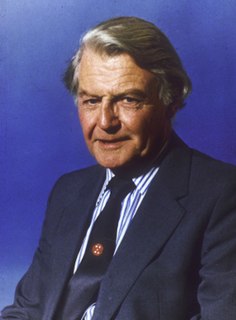
John Ivor Pulsford James was a British orthopaedic surgeon. He was professor of orthopaedic surgery at the University of Edinburgh from 1958 to 1979. Most commonly known as "JIP", he was secretary then president of the British Orthopaedic Association which later awarded him its honorary fellowship. James attracted orthopaedic specialists to work in Edinburgh, encouraging them to develop an interest in a specialist area of orthopaedics, and in this way he was able to establish a comprehensive regional orthopaedic service. He made contributions to hand surgery and surgical treatment of scoliosis, and was a prime mover in promoting specialist training and qualification in orthopaedic surgery in the UK.
Hugh Graham Stack FRCS was a British orthopaedic surgeon with a specialism in surgery of the hand. He was secretary of the Second Hand Club and was instrumental in the merger of the British hand surgery organisations to become the British Society for Surgery of the Hand.
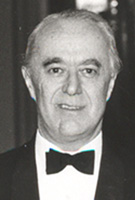
James Johnston Mason Brown OBE, FRCSEd was a Scottish paediatric surgeon. During World War II he served as a surgical specialist with the 8th Army in North Africa and Italy and was awarded the OBE for this service. As surgeon-in-chief at the Royal Hospital for Sick Children in Edinburgh, he edited the major textbook The Surgery of Childhood. He was the joint founder of the Scottish Surgical Paediatric Society and a founder member of the British Association of Paediatric Surgeons (BAPS), of which he became president. He was elected President of the Royal College of Surgeons of Edinburgh (RCSEd) in 1962 but died in office aged 56 years.
Denis Browne Gold Medal is a medal that was first struck in 1968, one year after the death of the paediatric surgeon Denis Browne and is awarded for outstanding contributions to paediatric surgery worldwide knowledge and is an honour bestowed by The British Association of Paediatric Surgeons.
Herbert Alexander Haxton FRCS FRSE was a Scottish surgeon to the Royal Manchester Children's Hospital and the Manchester North Hospital and Crumpsall Hospital. He contributed to surgical techniques of suturing and investigated the function of the sympathetic nervous system in the sweating conditions hyperhidrosis and gustatory hyperhidrosis.
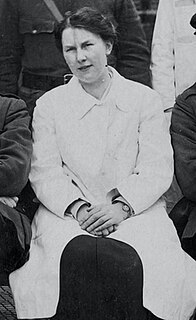
Dulcie Mary Pillers was an English medical illustrator and founding member of the Medical Artists' Association of Great Britain (MAA). The daughter of a Bristol solicitor, she completed her art training at Kensington Government School of Art, Berkeley Square, Clifton, Bristol, graduating in September 1911 with an Art Class Teachers' Certificate. At the end of the First World War, she was a medical illustrator to Ernest William Hey Groves, a well-known orthopaedic surgeon, at Beaufort War Hospital, a military orthopaedic centre at Stapleton, Bristol. After the armistice, she completed numerous pen and watercolour illustrations of operations at the Ministry of Pensions Hospital, Bath, and Southmead Hospital, Westbury-on-Trym. She also produced illustrations for papers written by medical colleagues at Bristol General Hospital.
References
- "Obituaries, Hugh Phillips". The Independent. 16 July 2005. Retrieved 18 June 2009.
- Dandy, David (September 2005). "Hugh Phillips, President of the Royal College Of Surgeons of England" (PDF). Bulletin of the Royal College of Surgeons of England. 87 (8): 261. doi:10.1308/147363505X62602 . Retrieved 18 June 2009.
- Horan, F. (2005). "Hugh Phillips (1940-2005)". Journal of Bone and Joint Surgery. British Volume. British Editorial Society of Bone and Joint Surgery. 87-B (11, 1581): 1581. doi:10.1302/0301-620X.87B11.17219.